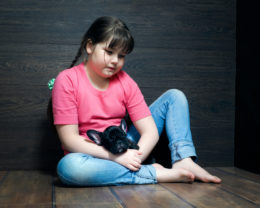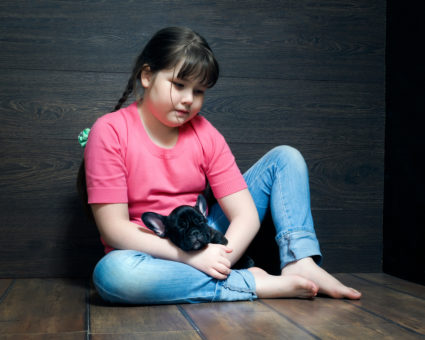
Attachment issues fall on a spectrum, from mild problems that are easily addressed to the most severe form, known as reactive attachment disorder (RAD). Reactive attachment disorder is a condition where the child is unable to establish healthy attachment with their parent or primary caretaker. Children with RAD have been so disrupted in early life that their future relationships are also impaired. They may experience difficulty relating to others and are often developmentally delayed. Symptoms of reactive attachment disorder are commonly found in children who have been abused, bounced around in foster care, lived in orphanages, or taken away from their primary caregiver after establishing a bond.
Early Warning Signs of an Attachment Disorder
Babies will exhibit early warning signs of attachment issues, and these warning signs should be addressed immediately before they turn into RAD. Attachment disorders can be treated in time, but the earlier they are diagnosed, the lesser likelihood they are to cause severe problems in the future.
- Avoids eye contact
- Cries inconsolably
- Is not interested in playing games or with toys
- Does not seem to notice when you walk in the door
- Does not seem to care when you leave them alone
- Spends a lot of time rocking or comforting themselves
- Does not smile
- Does not reach out to be picked up
Symptoms of RAD in Young Kids
- An aversion to touch and physical affection: Children with RAD often flinch, laugh or even say “ouch” when touched. Rather than producing positive feelings, touch and affection are perceived as a threat.
- Control issues: Most children with RAD go to great lengths to remain in control and avoid feeling helpless. They are often disobedient, defiant and argumentative.
- Anger problems: Anger may be expressed directly, in tantrums or acting out, or through manipulative, passive-aggressive behavior. Children with RAD may hide their anger in socially acceptable actions, like giving a high five that hurts or hugging someone too hard.
- Difficulty showing genuine care and affection: Children with reactive attachment disorder may behave affectionately with strangers while displaying little or no affection towards their parents.
- An underdeveloped conscience: Children with RAD may act like they don’t have a conscience and fail to show guilt, regret or remorse after misbehaving.
Symptoms of RAD in Older Kids
As a child with RAD grows older, their symptoms tend to change into one of two categories: inhibited and disinhibited.
- Inhibited symptoms of RAD: Extremely withdrawn, emotionally detached and resistant to comfort. The child is aware of what is going on around them but does not react or respond to anything in their environment. They are likely to push others away, want to be alone, ignore others and even act out aggressively if others do try to come close.
- Disinhibited symptoms of reactive attachment disorder: Does not seem to have a preference between their parents or strangers. They will seek comfort in anyone, without distinction. Tend to act extremely dependent and developmentally younger than their actual age.
Symptoms of RAD in Adults
RAD can carry on into adulthood if the child is not treated or if treatment was not 100% effective. The effects of RAD in adults can be significant and can interfere with the individual’s ability to experience relationships fully, have a positive sense of self and the individual’s mental health.
- Detachment
- Withdrawal from connections
- Inability to maintain significant relationships, romantic or platonic
- Inability to show affection
- Resistance to receiving love
- Control issues
- Anger problems
- Impulsivity
- Distrustful
- Inability to fully grasp emotions
- Feelings of emptiness
- Lack of sense of belonging
